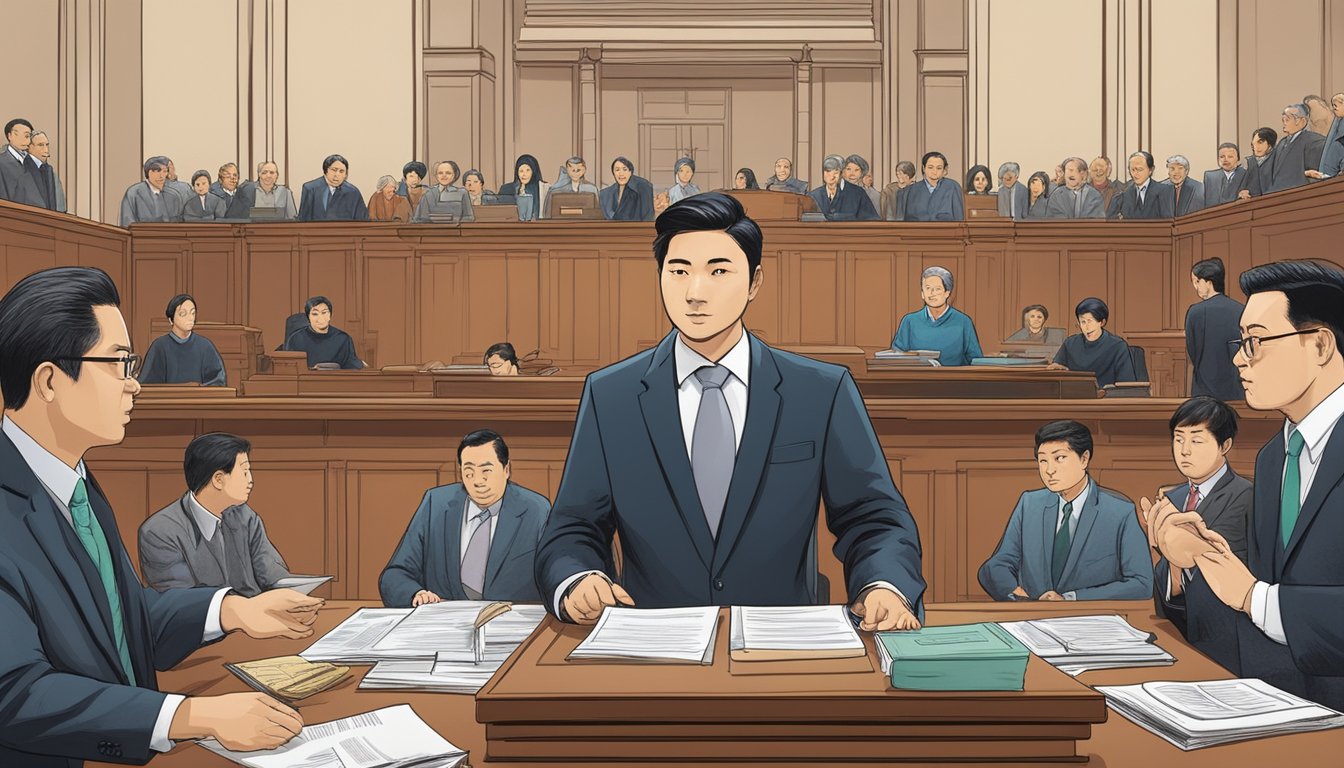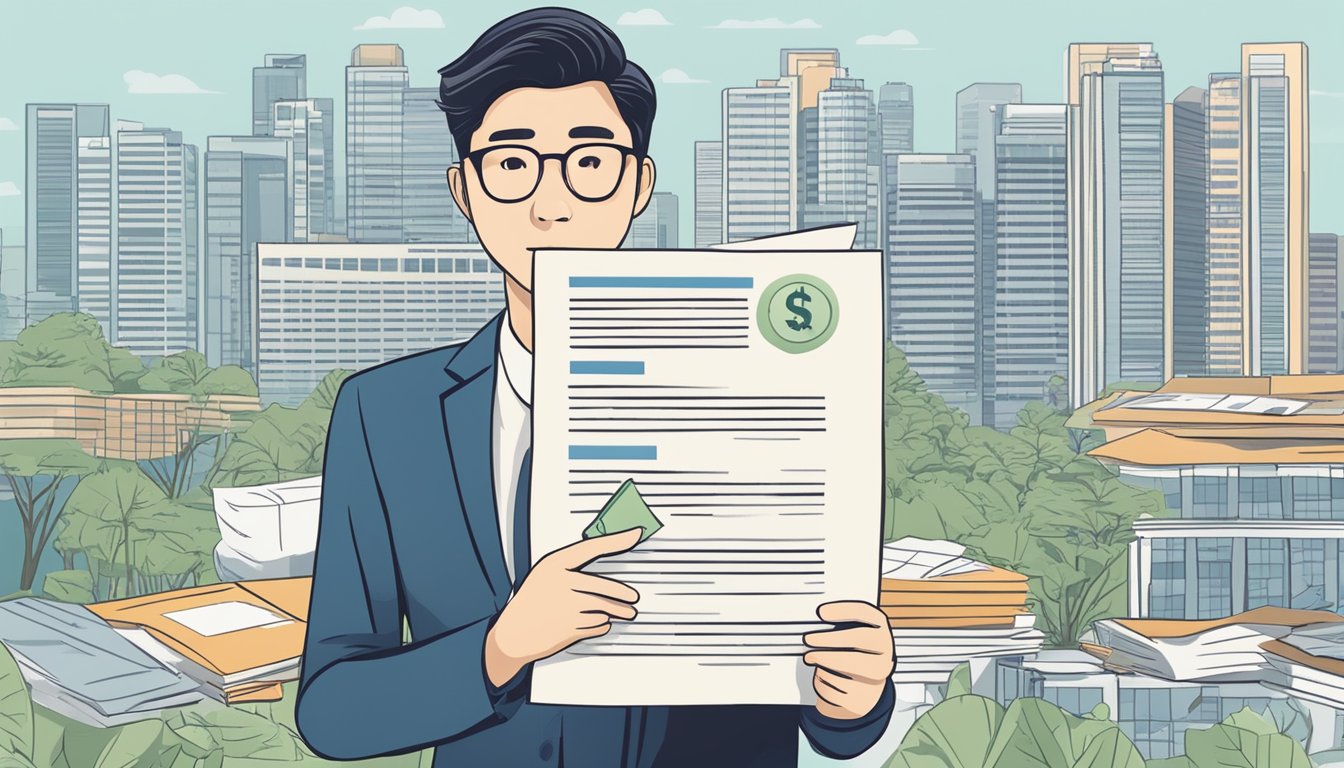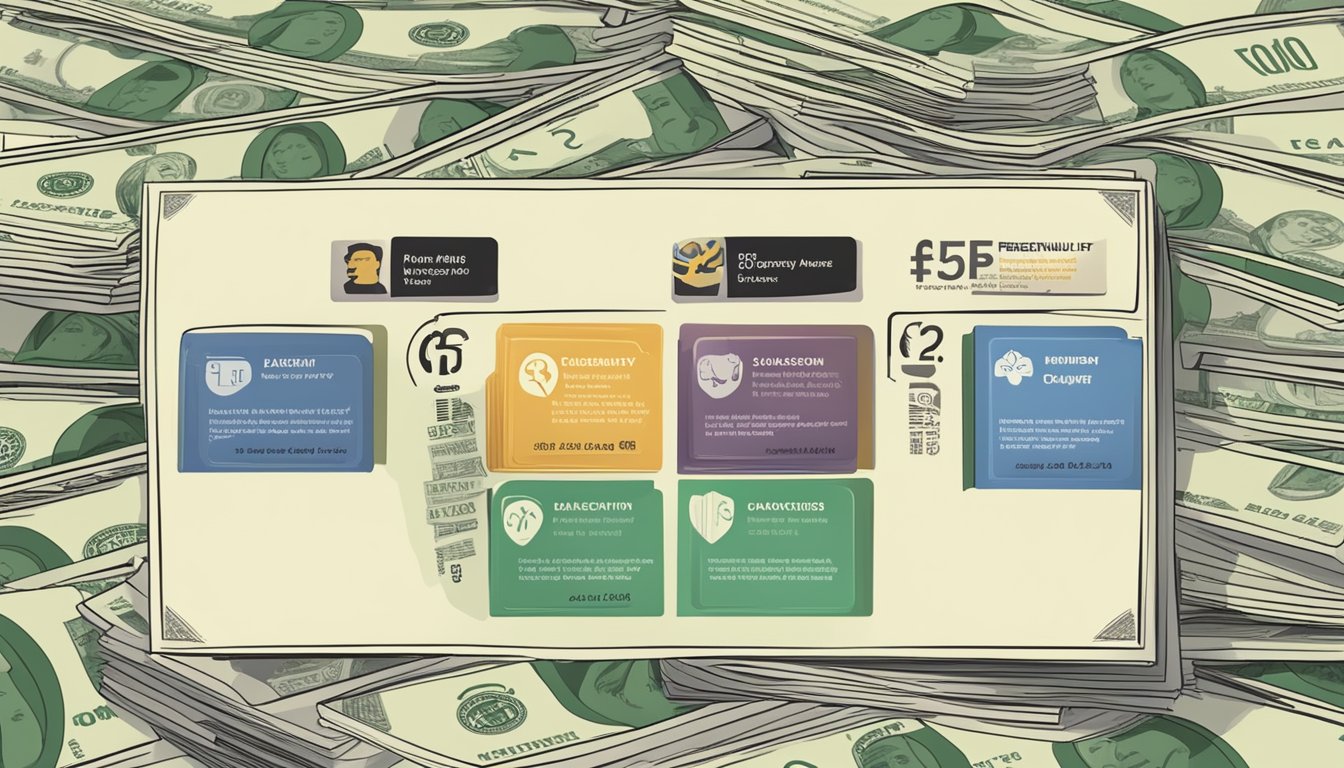Blacklisted moneylenders in Singapore are a growing concern for those who are in need of financial assistance. These unscrupulous lenders often take advantage of vulnerable individuals, charging exorbitant interest rates and fees that can lead to a cycle of debt. In this article, you will learn about the dangers of blacklisted moneylenders, how to recognize and avoid them, and what legal recourse is available if you have been a victim of their practices.

Understanding the risks associated with blacklisted moneylenders is crucial if you are in need of a loan. These lenders are often unlicensed and operate outside of the law, making it difficult to hold them accountable for their actions. They may also use deceptive tactics to lure individuals into taking out loans, such as offering quick cash with no credit check or requiring collateral that is worth more than the loan amount. It is important to be aware of these warning signs and to take steps to protect yourself from falling victim to their scams.
Legal recourse and regulations are in place to help protect individuals from the dangers of blacklisted moneylenders. The Ministry of Law in Singapore maintains a list of licensed moneylenders that have been approved to operate within the law. If you have been a victim of a blacklisted moneylender, you may be able to seek legal recourse to recover your losses. It is important to report any suspicious activity to the authorities and to seek help from reputable sources if you are in need of financial assistance.
Key Takeaways
- Blacklisted moneylenders in Singapore are unscrupulous lenders that take advantage of vulnerable individuals, charging exorbitant interest rates and fees that can lead to a cycle of debt.
- It is crucial to understand the risks associated with blacklisted moneylenders and to take steps to protect yourself from falling victim to their scams.
- Legal recourse and regulations are in place to help protect individuals from the dangers of blacklisted moneylenders, including a list of licensed moneylenders approved to operate within the law.
Understanding Blacklisted Moneylenders in Singapore

If you’re in Singapore and you need to borrow money, you have a few options. One option is to go to a licensed moneylender. Licensed moneylenders are regulated by the Singaporean government and must adhere to strict rules and regulations. Another option is to go to an unlicensed moneylender. Unlicensed moneylenders, also known as loan sharks, are not regulated by the government and often charge exorbitant interest rates and fees.
Difference Between Licensed and Unlicensed Moneylenders
A licensed moneylender is a financial institution that is authorised by the Singaporean government to provide loans to individuals. These institutions are regulated by the government and must adhere to strict rules and regulations. Licensed moneylenders are required to follow strict guidelines when it comes to interest rates, fees, and repayment terms. They are also required to disclose all fees and charges upfront.
On the other hand, unlicensed moneylenders are not regulated by the Singaporean government. These individuals often charge exorbitant interest rates and fees and are known for using aggressive tactics to collect debts. Unlicensed moneylenders are often referred to as loan sharks and should be avoided at all costs.
Recognising the Red Flags of Blacklisted Moneylenders
Blacklisted moneylenders in Singapore are licensed moneylenders who have flouted the rules set out under the Moneylenders Act. Due to the serious nature of their offences, these moneylenders had their licence suspended or revoked. It’s important to be able to recognise the red flags of blacklisted moneylenders to avoid falling victim to their scams.
Here are some red flags to look out for when dealing with moneylenders in Singapore:
- They offer loans with extremely low interest rates or no interest rates at all.
- They don’t ask for any documentation or proof of income.
- They don’t provide a clear breakdown of fees and charges.
- They ask for your SingPass login details or other personal information.
- They harass you or your family members to collect debts.
By being aware of these red flags, you can protect yourself from falling victim to blacklisted moneylenders in Singapore. Always do your research and choose a licensed moneylender that is regulated by the government.
Legal Recourse and Regulations

If you have been a victim of illegal moneylenders in Singapore, there are legal avenues you can take to seek recourse. The Moneylenders Act is the primary piece of legislation governing moneylending activities in Singapore. The Ministry of Law is responsible for regulating licensed moneylenders and ensuring that they comply with the law.
Moneylenders Act and Ministry of Law Involvement
Under the Moneylenders Act, licensed moneylenders must adhere to strict regulations and conditions. They are not allowed to charge an interest rate that exceeds 4% per month, and they cannot charge any other fees apart from a late payment fee that does not exceed $60 per month. The Ministry of Law maintains a list of licensed moneylenders in Singapore on their Registry of Moneylenders website.
If you have been harassed or threatened by an unlicensed moneylender, you should report the matter to the police immediately. The Ministry of Law has a dedicated enforcement team that investigates complaints against unlicensed moneylenders. They work closely with the police to bring these illegal operators to justice.
Penalties for Unlicensed Moneylending Activities
The penalties for engaging in unlicensed moneylending activities are severe. Offenders can face imprisonment, fines, or both. If convicted, they can be sentenced to up to four years in jail and fined up to $300,000. The courts can also order them to be caned.
Acts of harassment, such as threatening or using violence against debtors or their family members, are also prohibited under the Moneylenders Act. Offenders can face imprisonment of up to five years, fines of up to $50,000, or both.
In conclusion, it is important to be aware of the legal recourse available to you if you have been a victim of illegal moneylenders in Singapore. The Moneylenders Act and the Ministry of Law provide a framework for licensed moneylending activities and regulate the industry to ensure that borrowers are protected. If you encounter any unlicensed moneylenders or are harassed by them, do not hesitate to report the matter to the police or the Ministry of Law.
Protecting Yourself from Loan Scams

Loan scams are a growing concern in Singapore, and it’s important to take precautions to protect yourself from falling victim to them. Here are some ways to identify and avoid unlicensed moneylending advertisements and safe practices for borrowers.
Identify and Avoid Unlicensed Moneylending Advertisements
It’s important to be able to identify unlicensed moneylending advertisements. These advertisements may promise quick and easy loans with no credit checks or collateral required. They may also offer loans at extremely low interest rates or with no interest at all.
To avoid these scams, be wary of advertisements that seem too good to be true. Legitimate lenders will always require some form of identification and will check your credit history before approving a loan. If you come across an advertisement that seems suspicious, do some research on the lender before applying for a loan.
Safe Practices for Borrowers
When applying for a loan, there are some safe practices you can follow to protect yourself from loan scams. Here are a few:
-
Communicate with the lender directly: If you’re unsure about a lender’s legitimacy, communicate with them directly. Ask them questions about their lending practices and policies. Legitimate lenders will be happy to answer your questions and provide you with the information you need to make an informed decision.
-
Check the lender’s credentials: Before taking out a loan, check the lender’s credentials with the Registry of Moneylenders. This will help you ensure that the lender is licensed and operating legally.
-
Read the loan agreement carefully: Make sure you read the loan agreement carefully before signing it. Pay attention to the interest rate, fees, and repayment terms. If anything seems unclear or suspicious, ask the lender for clarification.
By following these safe practices, you can protect yourself from loan scams and ensure that you’re working with a legitimate lender. Remember, if something seems too good to be true, it probably is.
Reporting and Seeking Help

If you suspect or know of any unlicensed moneylenders in Singapore, it is essential to report them immediately. Here are some ways to report and seek help:
X-Ah Long Hotline and Police Hotline
The X-Ah Long hotline at 1800-924-5664 and Police hotline at 1800-255-0000 are available for reporting any unlicensed moneylending activities. You can also submit the information online at www.police.gov.sg/iwitness.
If you suspect or know of anyone who could be involved in loansharking activities, you can call the Police at ‘999’. It’s essential to provide detailed descriptions that can help solve the case much faster.
Credit Counselling and Financial Assistance
If you are struggling with debt and need financial assistance, Credit Counselling Singapore at 6225-5227 can provide free and confidential credit counselling services. They can help you with budgeting, debt management, and debt repayment plans.
The National Council on Problem Gambling at 1800-6-668-668 can also provide assistance if you are facing gambling-related financial problems.
Remember, licensed moneylenders follow the rules of the Ministry of Law and are found on the Registry of money lenders. Licensed moneylenders do not send text messages or call to advertise their loans. If you receive any such messages or calls, report them immediately to the X-Ah Long hotline or the Police hotline.
By reporting unlicensed moneylenders, you are helping to protect yourself and others from falling victim to loan sharks. Don’t hesitate to seek help if you are struggling with debt. There are resources available to help you get back on track.
Recognising and Choosing Licensed Moneylenders

When looking for a moneylender, it is important to ensure that they are licensed and approved by the Ministry of Law. This ensures that the moneylender is operating legally and in compliance with the regulations set out by the authorities.
Criteria for Licensing and Verification
To become a licensed moneylender, the applicant must meet certain criteria set out by the Registry of Moneylenders. These criteria include having a good credit rating and financial standing, having a clean criminal record, and passing a series of tests and assessments. The moneylender must also have a face-to-face verification process for loan transactions and approved places of business.
When choosing a licensed moneylender, it is important to verify their license and ensure that they are operating legally. You can do this by checking the Ministry of Law’s list of licensed moneylenders in Singapore.
Benefits of Choosing a Licensed Moneylender
Choosing a licensed moneylender has several benefits. Firstly, licensed moneylenders are required to adhere to strict regulations regarding interest rates and loan contracts. This ensures that you will not be subjected to exorbitant interest rates or unfair loan terms.
Secondly, licensed moneylenders are required to have a face-to-face verification process for loan transactions. This ensures that you are dealing with a legitimate moneylender and not a scammer or unlicensed moneylender.
Finally, licensed moneylenders are required to have approved places of business. This ensures that you are dealing with a legitimate and professional moneylender who has a physical location and is not operating illegally.
Overall, choosing a licensed moneylender is important for your financial safety and security. By following the criteria for licensing and verification and choosing a licensed moneylender, you can ensure that you are dealing with a legitimate and trustworthy moneylender who will provide you with fair and transparent loan terms.
Frequently Asked Questions

How can I identify a moneylender that’s been excluded in Singapore?
Identifying a moneylender that has been excluded in Singapore can be tricky, but there are a few signs to look out for. Firstly, if a moneylender is not registered on the money lender registry or has been blacklisted, it is best to avoid them. Secondly, if a moneylender behaves unprofessionally or rudely towards customers, this could be a red flag. Lastly, if a moneylender is not transparent about their loan terms, fees and conditions, it is best to steer clear of them.
What are the consequences of not settling debts with a moneylender?
If you do not settle your debts with a moneylender, you may face legal action. This can result in a court order to repay the debt, as well as additional fees and interest. In some cases, you may even face imprisonment. It is important to settle your debts with a moneylender as soon as possible to avoid any legal repercussions.
Where might one stumble upon unlawful money lending practices?
Unlawful money lending practices can occur anywhere, but they are more common in low-income areas and online. Some signs of unlawful money lending practices include cold calls or unsolicited text messages from moneylenders, as well as websites and social media accounts that mimic those of licensed moneylenders. It is important to be vigilant and report any suspicious activity to the authorities.
What’s the proper channel to report a dubious moneylender in our area?
If you come across a dubious moneylender in your area, you should report them to the Ministry of Law or the Singapore Police Force. You can also report them to the Registry of Moneylenders. It is important to provide as much information as possible, including the moneylender’s name, address and contact details.
Are there any new regulations affecting licensed moneylenders I should be aware of?
Yes, there are new regulations affecting licensed moneylenders in Singapore. For example, licensed moneylenders are no longer allowed to make cold calls or send unsolicited text messages to members of the public. They are also required to verify the identity and particulars of the borrower at their approved place of business. It is important to be aware of these regulations to protect yourself from unscrupulous moneylenders.
Do foreign nationals face restrictions with moneylenders considered off-limits?
Foreign nationals who are legal residents of Singapore are subject to the same regulations as Singapore citizens and permanent residents when it comes to borrowing from moneylenders. However, foreign nationals who are not legal residents of Singapore may face additional restrictions. It is important to check with the relevant authorities before borrowing from a moneylender.




